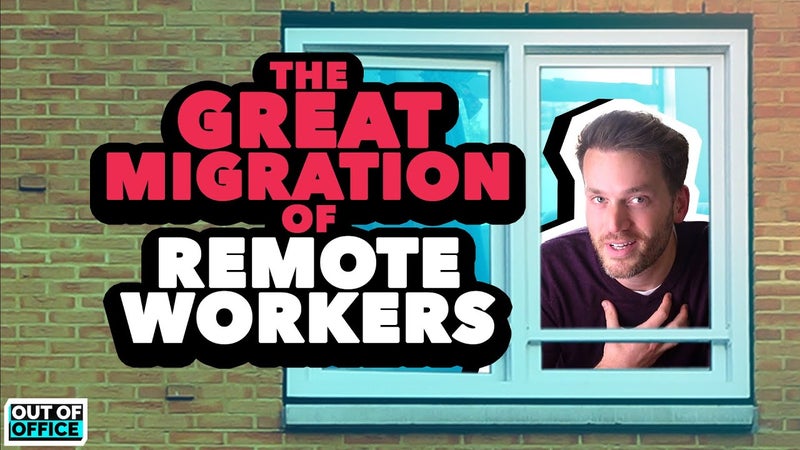Contents
- Hey! Welcome Back -
- Once Upon a Time in NYC
- CNBC: The Housing Migration
- The Migration Monopoly
Who's getting blamed for house price increases, and who's right? - this week on Out of Office.
🥫 Big City Life: Remote work exposes reality
📈 CNBC: Should we blame remote work for housing hikes?
Hey! Welcome Back -
This week on Out of Office we zero in on a subject close to my heart, and I share a personal story with you that sheds some light on why housing prices are climbing outside of city limits.
What does any of this have to do with remote work you ask?
I’m your host Andrew Allen, here to answer those pressing questions.
Let’s start with a story -
Once Upon a Time in NYC
Two years ago I woke up and realized that the city I loved was making me miserable.
I lived in a cramped apartment in an enormous building in the heart of Washington Heights, New York.
Without warning, the pandemic had changed everything about living there.
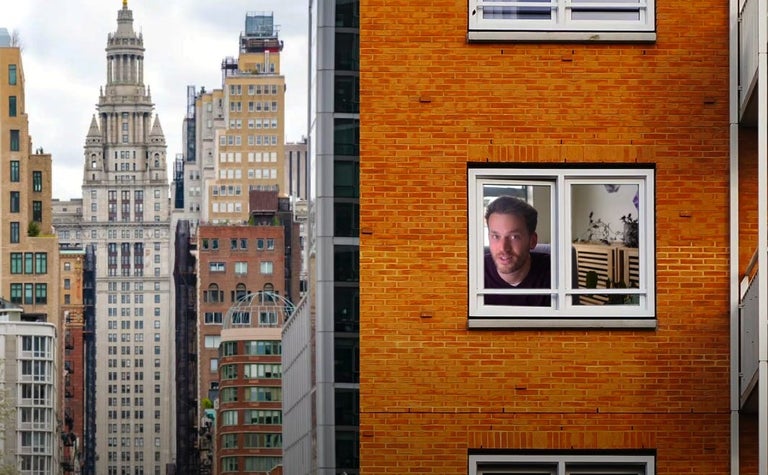
🍎 The big apple had suddenly become extremely small.
- Buzzy nightlife and a killer art scene vanished overnight
- Replaced by subpar living conditions in a sardine can apartment
That was the bat signal I needed to pack up my life and move across the world from the city I never wanted to leave, to a city I never expected to return to.
I was just one of millions who had accepted that my housing priorities had changed. And while the pandemic was the catalyst, it was remote work that changed everything.
The core of it was simple -
It didn’t matter anymore that I lived close to the office, but it mattered a lot that I didn’t have enough space for a desk.
CNBC: The Housing Migration
So how are changes in the housing market linked to the remote migration?
A recent CNBC report has showcased some interesting statistics on the shifting housing market since the pandemic struck.
- Housing prices in the US have increased by 24% between 2019 and 2021
- And they’ve increased the most in the cities that are attractive to remote workers
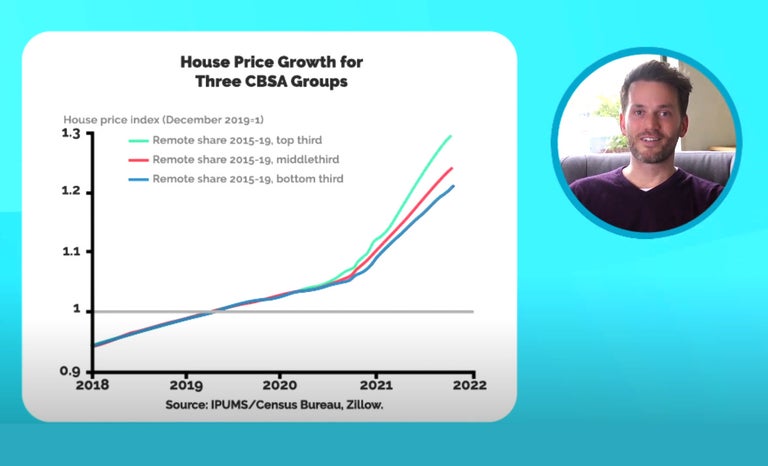
Hearing them report on it, you’d think remote work was some kind of boogeyman forcing people to pay more for things.
The truth is far less sinister, and I would know, because I actually took the time to read the research study that the article was based on, published by the Federal Reserve Bank of San Francisco.
🐶 What we know:
- Loads of people are now working remotely
- House prices have increased quite a bit
- Prices have mainly increased in beachy or small mountain towns
The same places that anybody would choose to live if they didn’t have to factor the location of offices and relatives into the equation.
But any statistics major will tell you that correlation doesn’t equal causation.
Sure everyone is working remotely now - but that makes parsing out the truth that much harder because there’s no control group.
💵 To illustrate that… here in New Zealand where I live, this is how much prices have skyrocketed over the same two year period:
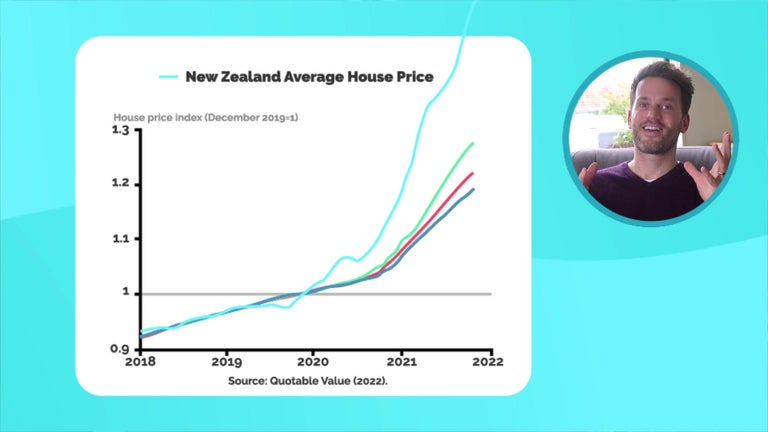
I was blown away to see that it’s cheaper to buy a place in Manhattan than in my hometown. The average house in my country now costs over a million dollars.
So if your city still has options in the three hundred thousands, you’re doing alright!
The Migration Monopoly
I wonder if what we’re seeing now is more of a corrective phenomenon than a price hike.
For generations now we’ve been watching the necessary exodus from small communities to big city life. We’ve all seen the headlines…
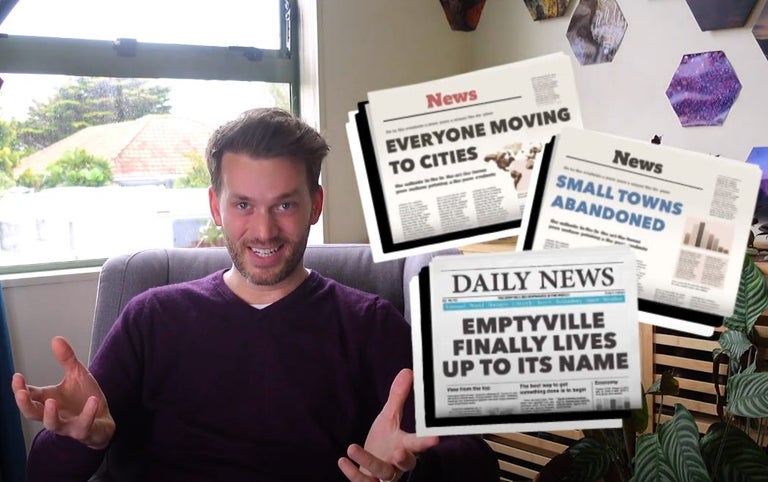
Perhaps this is just a restoration of supply and demand, returning property values a little closer to where they naturally would have been if office-based work hadn’t placed such a vice grip on where people lived for the past 60 years?
And who was winning from all that?
The answer is easy - like Monopoly - the landowners in the large cities!
And that mostly means corporations and hedge funds of course.
Now that remote work enables people to live wherever they want, supply and demand is catching up. And is that such a bad thing?
🧐 Everyone’s winning:
- People in small towns win because their land value is increasing
- People moving to small towns win because they get to live where they want
- People who stayed in big cities win because they have lower traffic and competition
The only people losing now are the big-time landlords.
They bet everything on a belief that people like you would be willing to work in a corporate cubicle farm day in and day out, forever - no matter the cost.
They bet wrong.
It’s so clear to me that compromising on where I lived because of an office location was never worth it. And now the rest of the world is starting to realize that too.
I for one am happy others are now getting the same opportunity I’ve had.
Thanks for reading - and remember - the future of work is Out of Office.
Andrew


